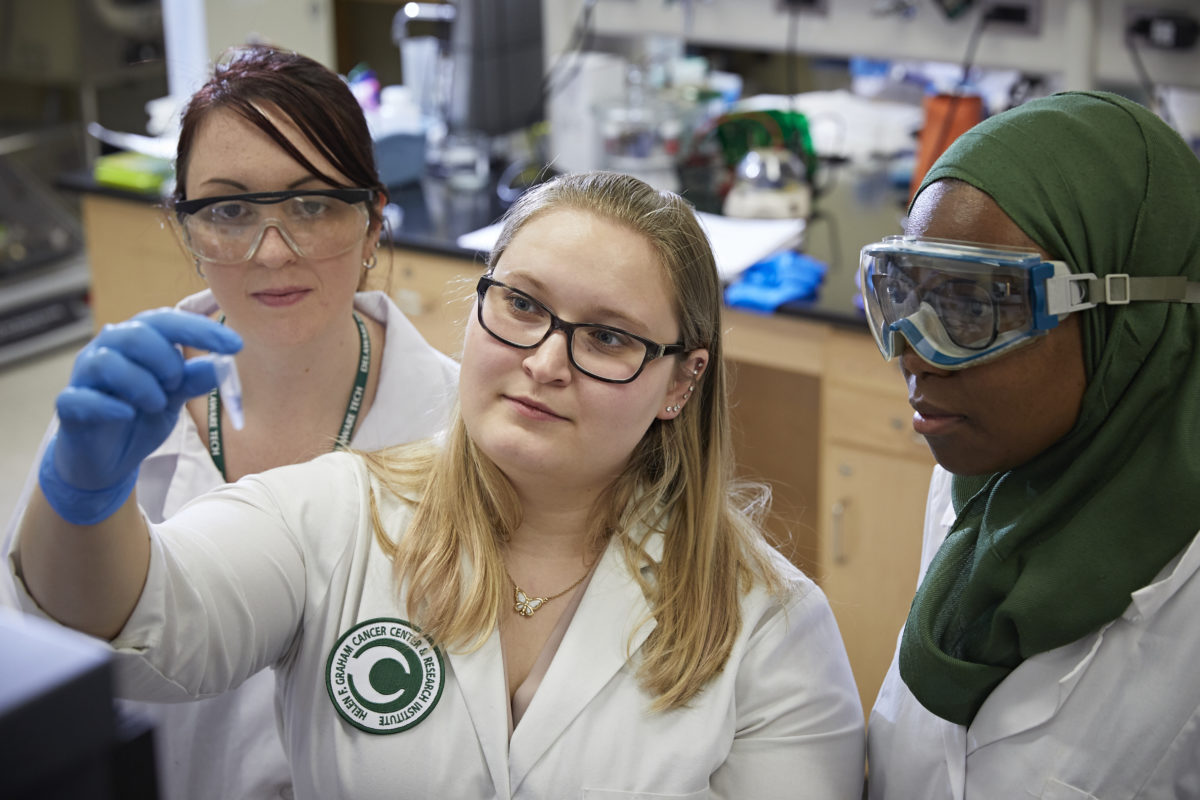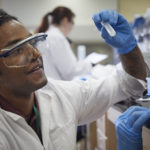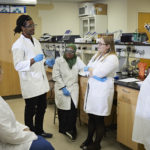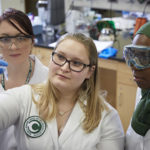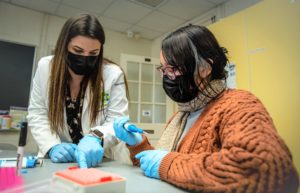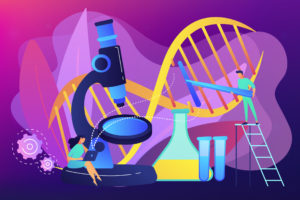“You have seen the future, and it is gene editing,” said Janice E. Nevin, M.D., MPH, Christiana Care president and chief executive officer, as she congratulated biomedical students and faculty at Delaware Technical Community College for pioneering what may be the first-ever community college curriculum to include the revolutionary CRISPR gene editing technology.
Thanks to a $1 million National Science Foundation grant, Christiana Care’s Gene Editing Institute and Delaware Technical Community College developed a unique curriculum to include gene editing into two courses in its biological sciences program at its Stanton, Delaware campus. As part of the grant, Delaware Tech will also hold a series of workshops over the next several years to teach gene editing techniques to community college faculty across the U.S. and help them develop their own curriculum.
Gene editing is a way of making specific changes to the DNA of a cell or organism. An enzyme cuts the DNA at a specific sequence, and when this is repaired by the cell a change or “edit” is made to the sequence.
“This innovative curriculum combines the unique talents of Christiana Care’s world-renowned gene editing team with the teaching expertise of our instructors at Delaware Tech,” said Delaware Tech President Mark T. Brainard, J.D. “This program will provide a boost to biomedical research and enhance the workforce in Delaware and elsewhere.”
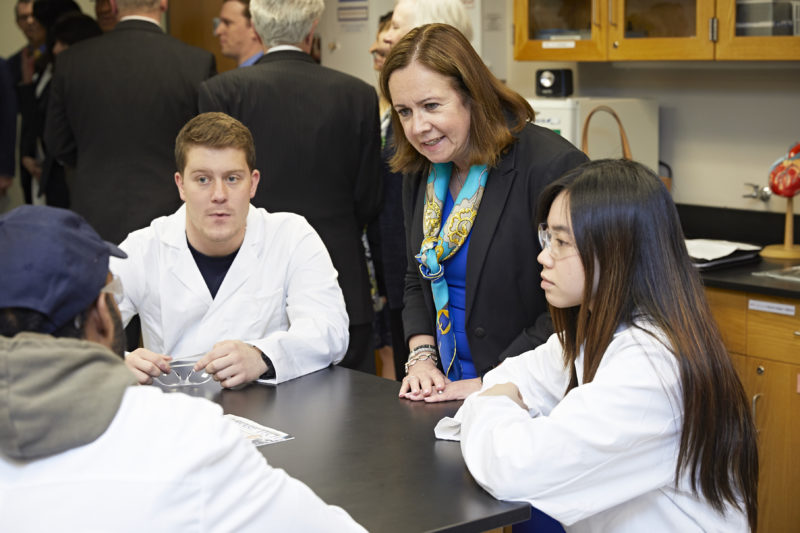
“This partnership is leading the nation in making the promise of gene editing a reality and cultivating a workforce with the special skills that will be vital in this new frontier of bioscience,” said Dr. Nevin.
“California may have its Silicon Valley, but here in Delaware we have our own Innovation Corridor – home to some of the giants of engineering, manufacturing, industry, education and health care.”
“The curriculum can be expanded to accommodate any level of instruction, and that’s the beauty of it,” said Eric Kmiec, Ph.D., director of the Gene Editing Institute at Christiana Care. “Students are now using the second iteration of a gene editing laboratory exercise that we developed – the same reaction that we still use on in our own research laboratory.
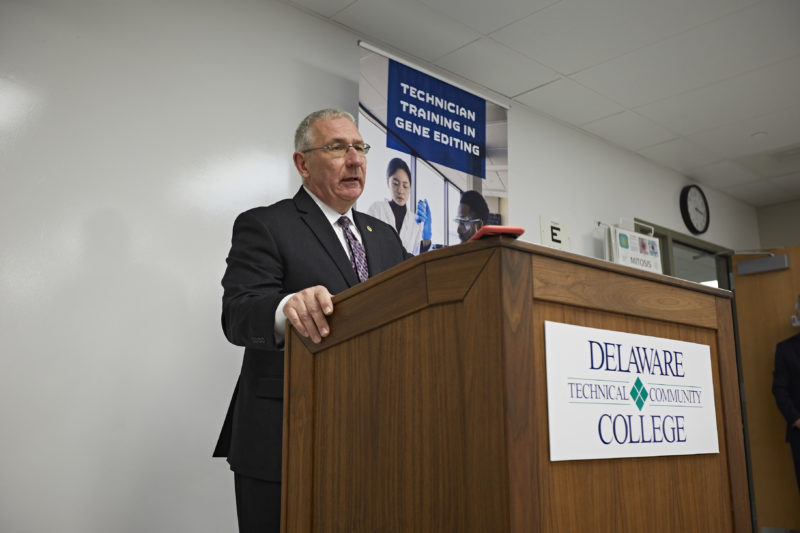
“It’s the basis for the new ‘gene editing on a chip technology,’ a cancer diagnostic tool that’s already been commercialized. It is very exciting that students carrying out this unique reaction in an educational format can see a direct application into the real world of cancer research.”
“Having the CRISPR Cas 9 gene editing tool brought into our courses has been a tremendous advantage for our students,” said John McDowell, Ph.D., a faculty member who teaches biology and biotechnology at Delaware Technical Community College. “Right here in Delaware they are able to gain access to the latest information and skills that are very rarely taught in an undergraduate level, especially at community colleges, that will position them for future education and the biomedical workforce.”
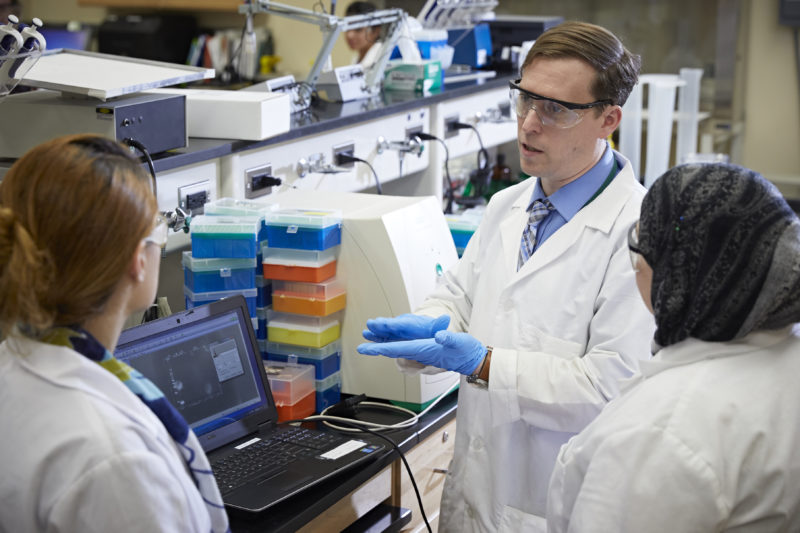
Kristen Pisarcik, science educator at the Gene Editing Institute, serves as liaison for the program at Delaware Tech. “What is really cool about the program is that as soon as new techniques are discovered and advanced at the Gene Editing Institute, I can immediately transfer those discoveries into the community college curriculum,” she said.
“I am thrilled and grateful to be part of a pioneering program,” said Sheldon Wilson, a student enrolled in the spring genetics class. “The gene editing techniques I have learned in this course will transfer very well to a four-year university.”
“I love science and I love medicine, and I want to pursue an advanced degree,” said Deborah Negron, also a student in the class. “Gene editing is going to have an enormous impact on all fields of science and medicine, and it is important for me to learn this technology now.”
